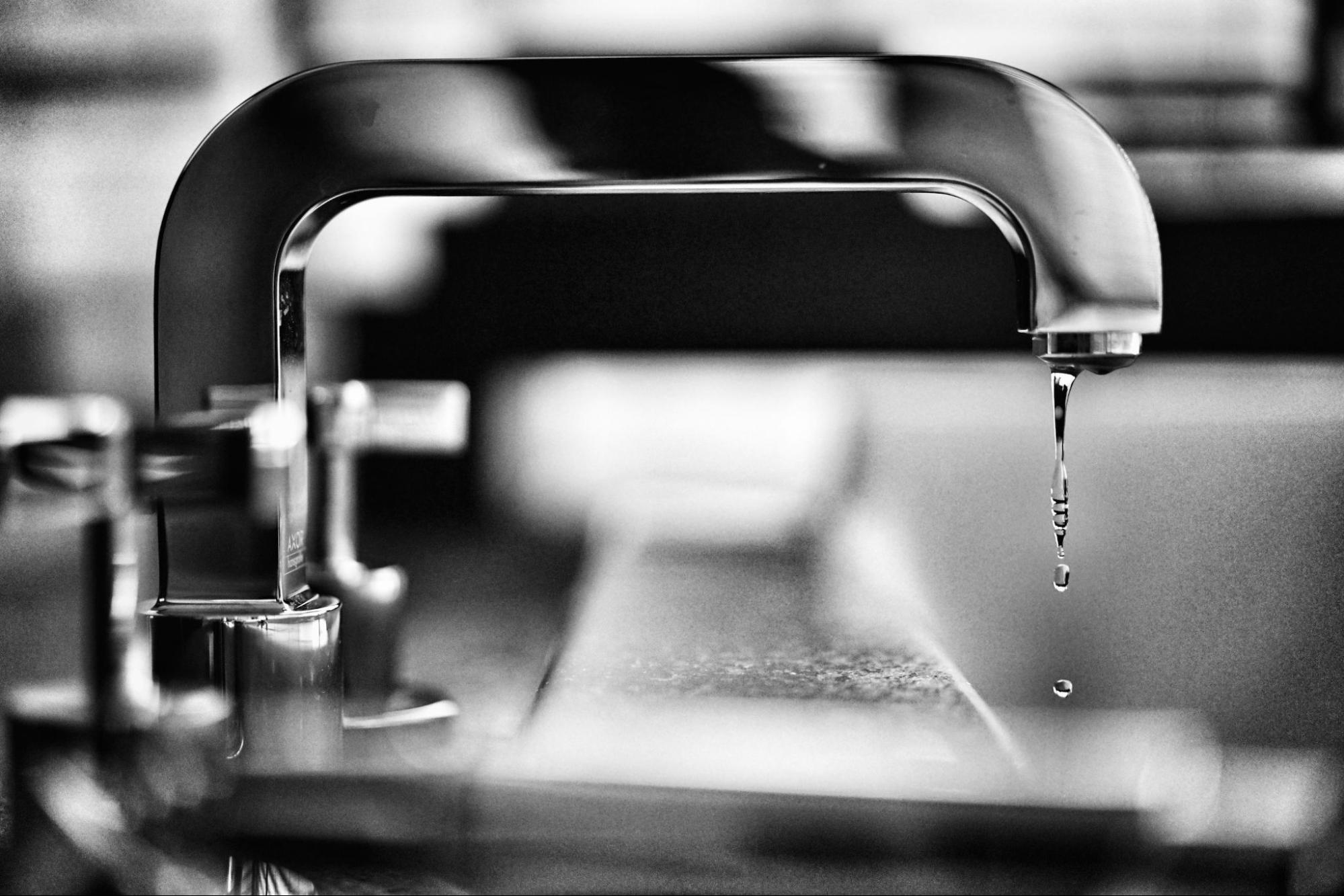
When should you contact a professional to repair your water heater?
Your water heater plays a central role in your daily comfort. Nobody likes to start their day with an ice shower! A problem with this device can quickly become a source of significant stress. Fortunately, not every malfunction requires expensive repair.
There are some warning signs that allow you to detect a problem in time, and sometimes a few simple actions are enough to solve it. This guide will help you identify common failures, know which checks to do first, and most importantly, determine when The intervention of a professional becomes necessary to restore your hot water quickly. So you will know exactly how to react in the event of a failure and regain the comfort of your hot showers.
Early signs of a water heater malfunction
Before a complete outage, your water heater usually sends you warning signals. Recognizing these signs allows you to intervene quickly and avoid more serious problems. The most obvious manifestations are changes in water temperature or the appearance of abnormal noises.
The first indicator is often cold or warm water flowing from your faucets. A visible leak around the device is also a serious warning. If something goes wrong, ignoring these signals can compromise the safety and longevity of your installation.

Cold or warm tap water: what to understand?
When you turn on the faucet and notice that the water is still cold or barely warm, it is a direct indication that your water heater is malfunctioning. This lack of hot water indicates a problem in the production of hot water in your home. There are several reasons that can explain this situation. Don't panic: a few simple checks are within your reach.
Before calling on A professional, first look at some key points. If your water heater is no longer producing hot water, start with these basic checks. Verify that the power supply to the appliance is working properly. Then check the condition of the circuit breaker to make sure it hasn't blown. Also remember to check the thermostat: it should not be set too low or in safety mode.
In the event of a failure, the most common causes of cold water are:
- A problem with the power supply
- A faulty or poorly adjusted thermostat
- A resistance covered with scale that no longer heats up effectively
Unusual noises coming from the water heater
A water heater in good working condition remains generally quiet. If you start to hear strange sounds like hissing, clicking, or rumbling sounds, it could be a sign of a problem. In most cases, these noises indicate an accumulation of limestone and sediments at the bottom of the reservoir.
Scale is gradually deposited on the resistance of the device. It must then overheat to reach the desired temperature, which causes these noises. Over time, this situation damaged the device and reduced its effectiveness. It is therefore important not to ignore these sound manifestations.
Regular maintenance, including descaling, helps prevent this type of problem before it gets worse. However, if the noises persist or intensify, contact expert installers. They identify the source of the problem and carry out the necessary repairs safely.
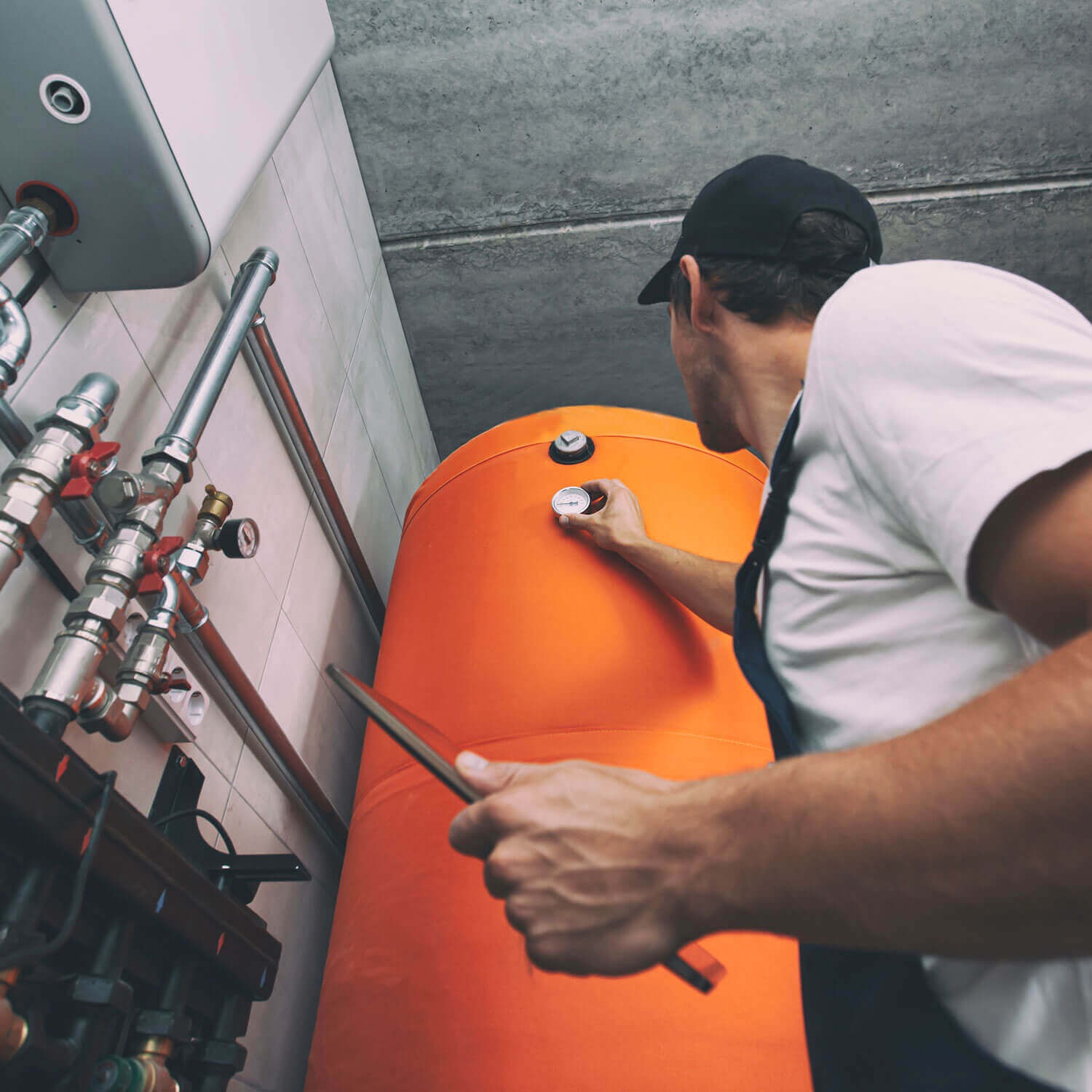
Presence of leaks around the water heater
Finding the smallest leak near your water heater requires a immediate action. The water can come from the safety unit, from the supply connections, or sometimes from a crack in the tank. No leak, regardless of its level, should be overlooked. Even if it is minimal, it can have significant consequences.
A faulty water heater that is not repaired presents several risks. Excessive humidity can damage electrical components and cause a short circuit. A leak can also signal abnormal pressure in the device, revealing a more serious problem.
Failing to repair a leaking water heater exposes your home to several dangers:
- Major water leaks that can damage your floors and walls
- Electrical risks if water reaches the power supply
- Accelerated wear of the device due to corrosion of the tank
Common causes of water heater failures
To effectively solve your water heater problems, Understand the origin of the failure is essential. In the majority of cases of failure, the cause remains relatively simple to identify. Often, failures result from the normal wear and tear of components over time, or from insufficient maintenance.
Problems with your appliance may be electrical, such as a power failure. They can also be mechanical, involving the thermostat or the resistor. The accumulation of scale in the tank also poses a serious threat to the device and reduces its lifespan.
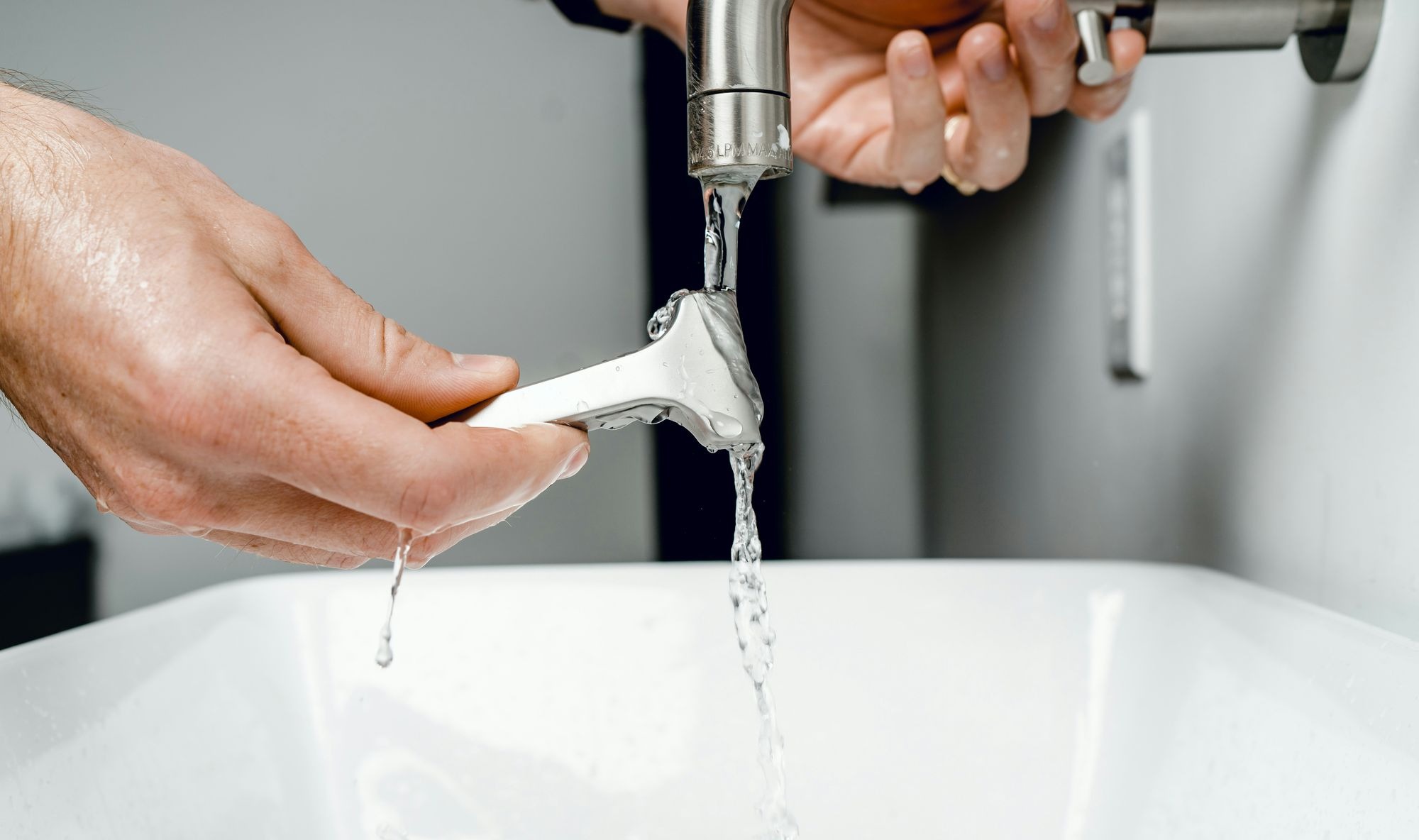
Power supply issues
One of the most common causes of a water heater shutting down relates to the electrical supply. If your appliance does not heat up at all, first check that it is receiving power. A circuit breaker that has jumped on the electrical panel may explain this problem. The solution can be very quick, and your device can reboot in a matter of moments.
Sometimes you just need to check that the power cable is plugged in. On older installations, a blown fuse may require replacement. These simple checks save you time and money.
However, if the circuit breaker repeatedly jumps even after it has been switched on, this indicates a more serious problem. It could be a short circuit. In this case, call in a professional to eliminate any electrical risk.
Thermostat or resistor faults
The thermostat and the resistor are the essential components of your water heater. If one of these fails, your appliance will not produce hot water properly. The thermostat acts like the brain and controls the heating. Resistance works like muscle and ensures effective heating.
The failure may be caused by the thermostat, which goes into safety mode in case of overheating. You can try to reset it by pressing the small reset button, which is often red and is located under the protective cover. If the device reboots, the problem may be temporary.
However, if the problem persists or the thermostat frequently goes to safety, the part is probably worn out or faulty. A professional will have to perform measurements and replace the damaged part.
Scale accumulation and corrosion
Scale can become the main enemy of your water heater, especially if the water in your home is hard. Over time, calcareous deposits accumulate at the bottom of the tank and on the resistance. This build up forces the appliance to work harder to heat the water, increasing your energy consumption.
Tartar buildup doesn't just reduce effectiveness. It also accelerates the wear of components. The resistor may overheat and burn. The tank may corrode and begin to deteriorate, which weakens the metal and may result in leaks or breakage.
Regular maintenance, including descaling every two to three years, is still the best way to prevent scale and corrosion. Taking care of your device on time helps it function effectively and extends its lifespan.
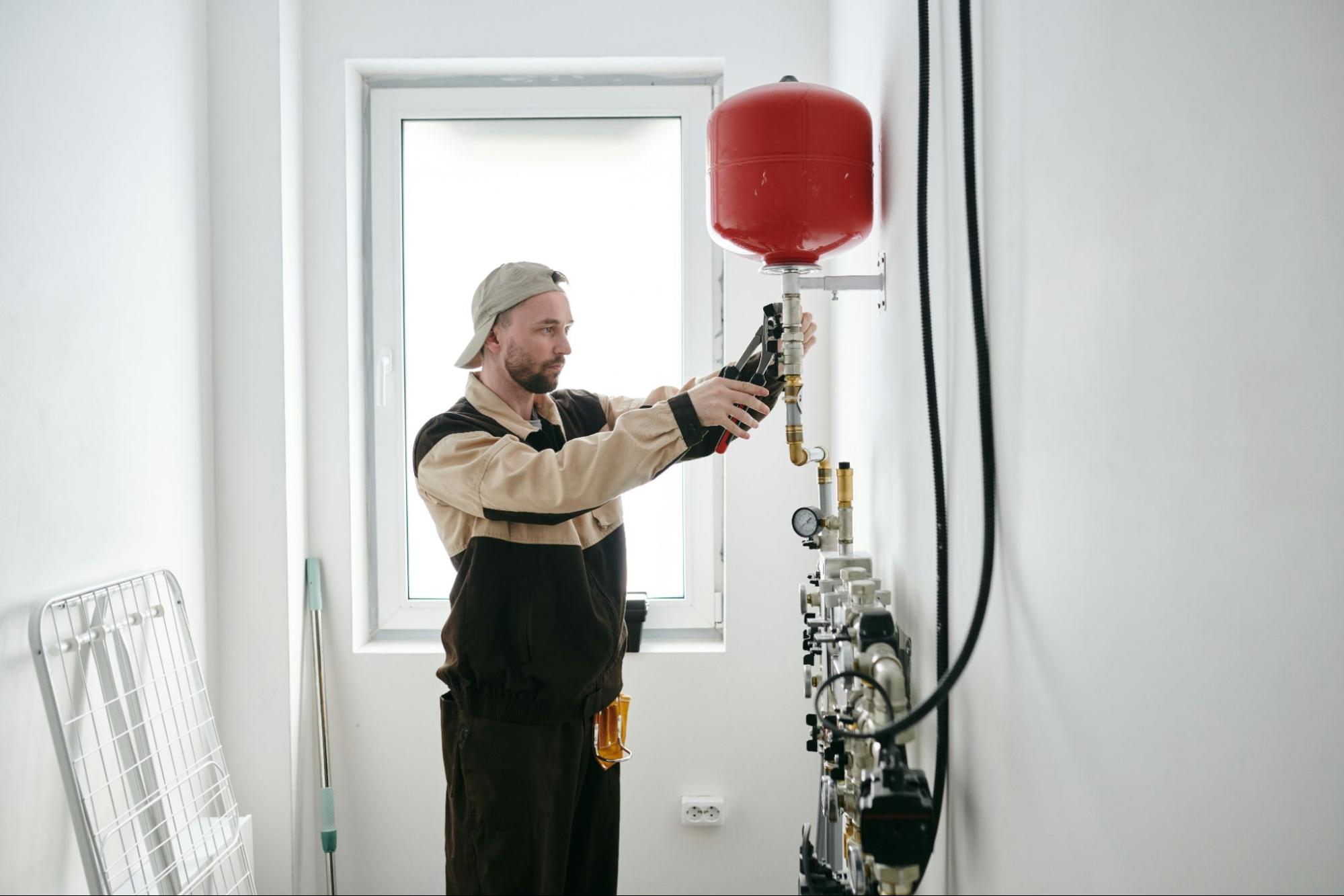
When should you call a professional to repair a water heater?
Some repairs are simple, but there comes a time when the problem becomes too complex and requires a professional. A complicated or dangerous failure does not have to be fixed by yourself. Attempting to do so may worsen the situation and compromise your safety.
When all the basic checks don't show any results, it's time to contact a professional technician. He has the appropriate tools and the necessary expertise. It can identify the problem and fix it safely.
Situation of persistent or total failure
You've checked the circuit breaker and reset the thermostat, but you still don't have hot water. In this case, multiple attempts often waste more time and may damage your device. A total or recurring outage usually indicates a more serious problem with your device.
Faced with this situation, A professional can tell you if it's best to repair or replace your water heater. After a complete inspection, he will determine if a small repair is sufficient or if your device is nearing the end of its life and requires replacement. A water heater lasts for about 10 to 15 years.
Don't let a problem with your device persist for too long. A quick request for help allows you to regain your comfort and get an expert diagnosis that will help you choose a profitable solution in the long term.
Risks associated with electrical or plumbing interventions
Attempting to repair a water heater yourself can be risky, especially if the failure involves gas, plumbing, or electricity. A mistake can lead to serious problems, damage to your home, or even serious accidents. Knowing your limits is crucial.
A plumber or certified technician is trained to work safely. He is fully familiar with the standards and procedures to handle electrical circuits and water connections safely. For a gas water heater, calling in a professional is mandatory by law.
The main risks of an amateur repair are:
- The risk of electric shock when touching live wires
- Significant water leaks if the connection is poorly made
- Gas leaks or explosions for gas appliances
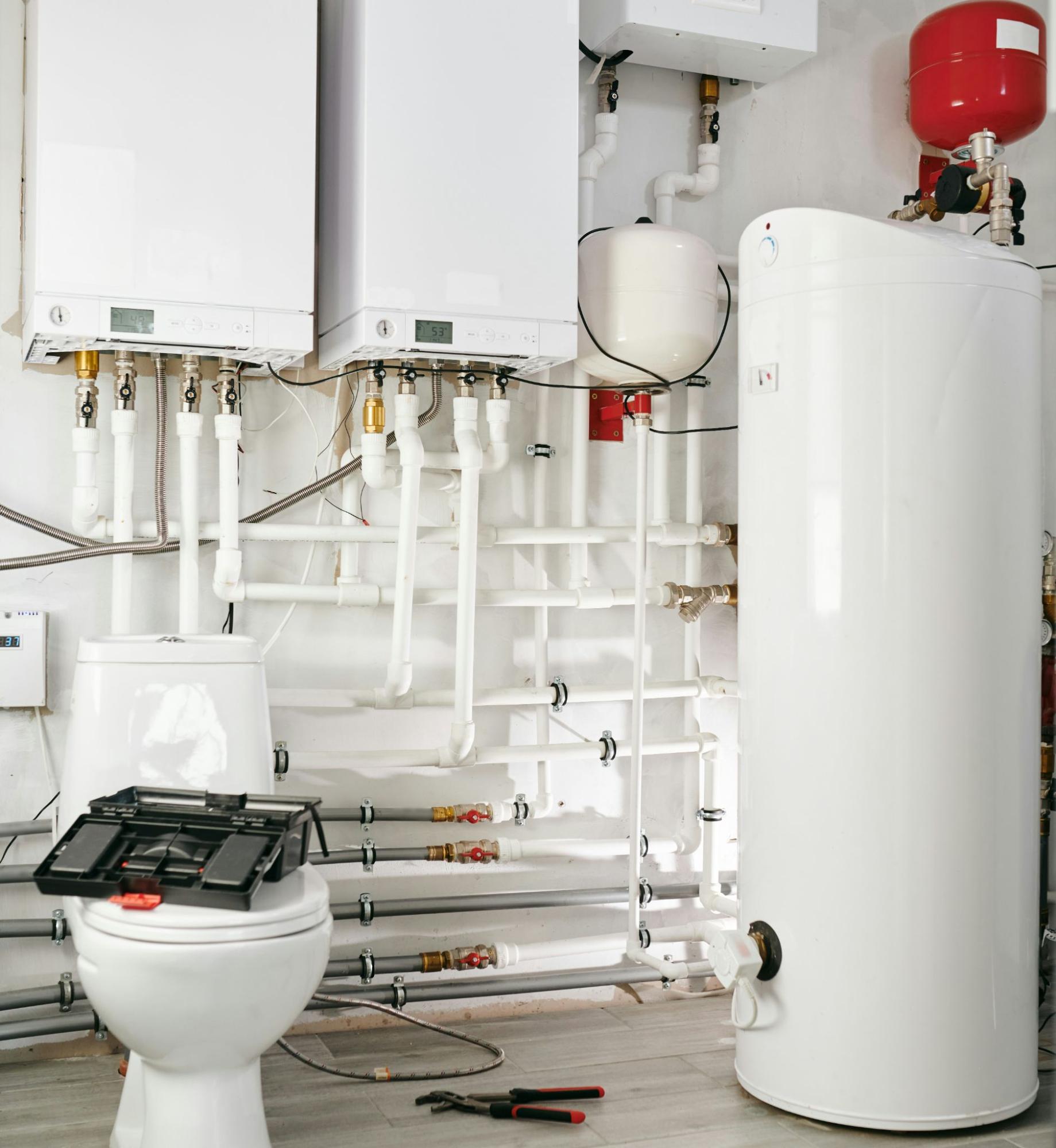
Protect your comfort: act quickly in the event of water heater failures
In summary, watching for the first signs of a water heater malfunction is essential. Don't ignore issues like cold tap water or unusual noises, as these can lead to bigger and more expensive problems. If you are facing a persistent failure or if you have doubts about your ability to repair the device, it is best to contact a professional. This will help you avoid electrical or plumbing risks. Getting help quickly ensures your device is working properly and your home is safe.
A water heater failure? The experts at Plomberial intervene quickly! Contact us for a professional diagnosis and get your hot water back without delay.
FAQ

